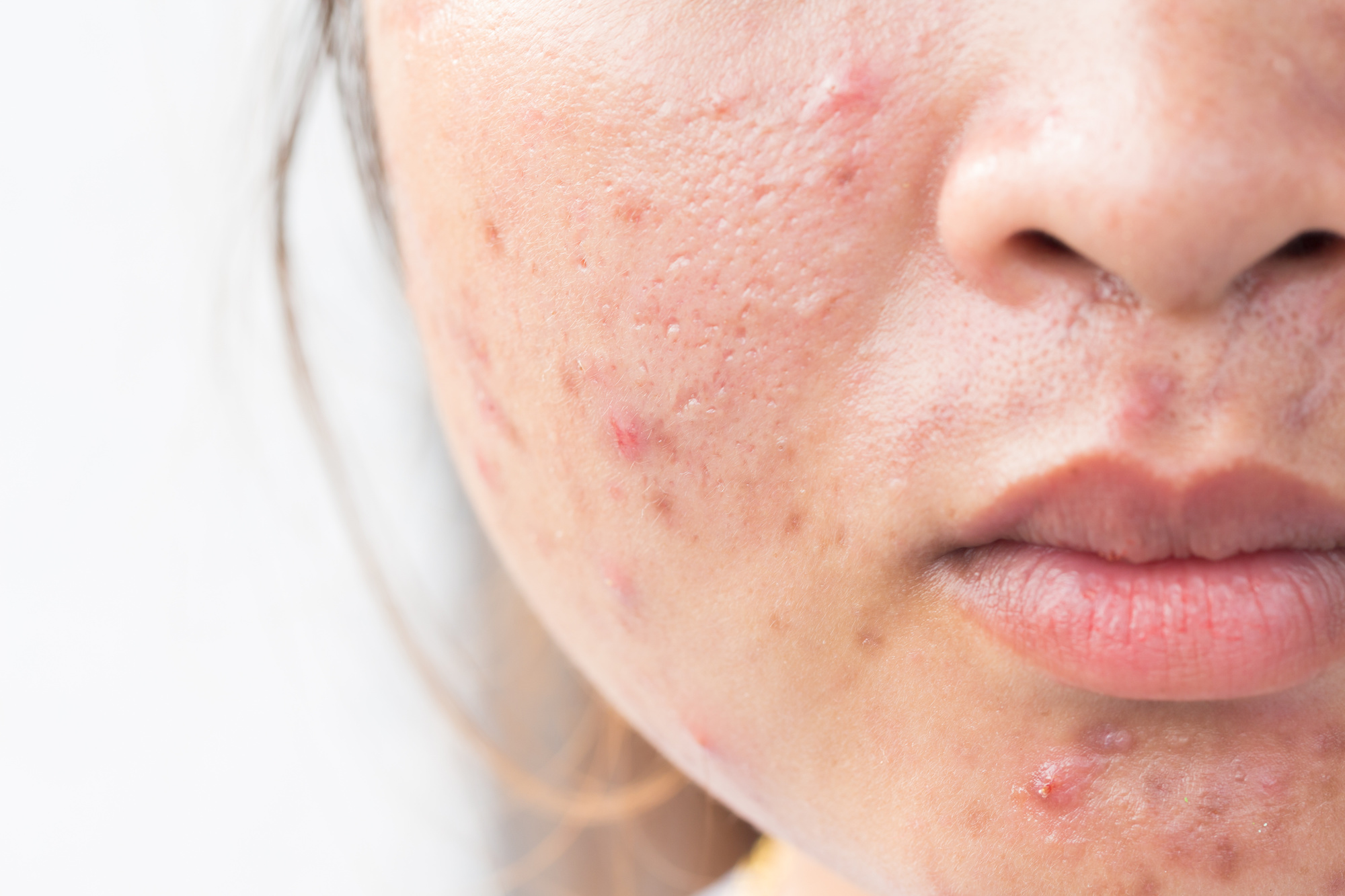
If you have problems with acne, you’re not alone. Millions of people around the country are struggling to manage their skin where oil glands and ducts become blocked up with oil and dead skin cells. But for some people, soap and scrubbing, or topical creams just aren’t enough. Several chemical peels offer acne treatment options that can offer great results for stubborn cases.
A chemical peel is the application of a chemical solution that causes the skin to exfoliate and peel off, replaced by newly grown skin that is smoother. In addition to treating acne, a stronger chemical preparation can be used to improve the appearance of acne scars. “There are three basic types of chemical peels: a superficial peel; a medium peel; and a deep peel,” explains Emily Johnston, Physician Assistant at Sanova Dermatology. The type of peel selected will depend on the severity of your acne, as well as other patient factors. “Basically, chemical peels can be prepared in different strengths to suit your skin and your acne,” Johnston says.
Superficial peel. Sometimes called a lunchtime peel due to the speed of the treatment, this superficial chemical peel employs alpha or beta hydroxy acid or another mild acid to reach only the outer layer of the skin, gently exfoliating it. Alpha hydroxy acids are found in plants and fruits and are often employed in skin-care products for their exfoliating properties.
Medium peel. A medium peel penetrates deeper to reach the middle layers of the skin in order to remove dead or damaged skin cells. “This treatment can consist of the application of a glycolic acid, an acid found in some sugar crops that is also widely used in skin-care products,” shares Johnston. Another acid that is used is salicylic acid, which is made from the bark of the willow tree.
Deep peel. A deep peel employs trichloroacetic acid or phenol, which penetrate the middle layer of skin. “Deep peels are not as frequently performed as they used to be,” explains Emily. “With newer lasers that can effectively and predictably resurface the skin and treat acne scars, deep peels are simply not as popular as they used to be.”
Contact Us
In order to determine which chemical peel and which preparation is best for your skin, you’ll need a consultation with a dermatologist who can help you understand your treatment options. Contact us to start the conversation about blemish free skin.
